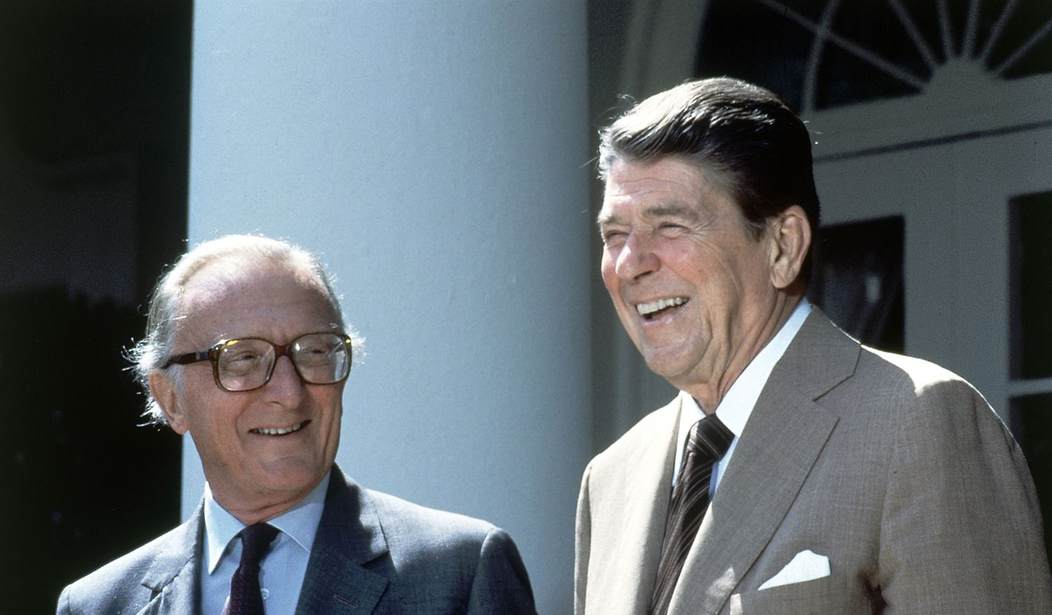Simi Valley, California -- "I know in my heart that man is good, that what is right will always eventually triumph and there is purpose and worth to each and every life."
Those words from the late President Ronald Reagan appear above where he and his beloved Nancy's earthly remains rest here at the Ronald Reagan Presidential Library and Museum. Visiting before the National Review Institute's annual Buckley Prize dinner, I unexpectedly found these words a little jarring. What leading politician believes such things anymore?
At the groundbreaking of the library, Reagan said: "The journey has not just been my own. It seems I've been guided by a force much larger than myself, a force made up of ideas and beliefs about what this country is and what it could be. The story that'll be told ... here is the story not only of a presidency but of a movement -- a determined movement dedicated to the greatness of America and faith in its bedrock traditions; in the essential goodness of its people; in the essential soundness of its institutions; and, yes, faith in our very essence as a nation."
With his typical humor, President Reagan raised a challenge during his farewell address in 1989, emphasizing the importance of family and the choices Americans make daily: "Let me offer lesson No. 1 about America: All great change in America begins at the dinner table. So, tomorrow night in the kitchen I hope the talking begins. And children, if your parents haven't been teaching you what it means to be an American, let 'em know and nail 'em on it. That would be a very American thing to do."
Recommended
If Americans don't know there is something to cherish and protect and defend and nourish about America, we will lose it.
In a 1983 speech to the National Association of Evangelicals, President Reagan quoted Alexis de Tocqueville observing: "Not until I went into the churches of America and heard her pulpits aflame with righteousness did I understand the greatness and the genius of America. America is good. And if America ever ceases to be good, America will cease to be great."
To my mind, the family is the most important thing there is in America. How do we value it? How do we cherish it? How do we support it? How do we ensure that children know that while there is evil in the world, man is born good?
At the National Review Institute dinner, sitting in the Reagan Library with conservatives -- some who didn't vote for Trump and some who worked for him, but who nevertheless share common histories and principles -- I wondered if we might get our act together again. Not just conservatives, but Americans who share a common history. I talked with an Uber driver from Nigeria in the last week who works six months in the D.C. area and then spends a few months back home. Is it worth it, I asked him? "What, are you crazy? America is where there is hope," he told me.
President Reagan had faith in that idea, in a confident and aspirational way. As president, he had a plaque that read "It can be done" on his desk. Those of us who don't want to live in ideological silos should take it as a nudge from a man who helped tear down a monumental wall (a piece of which is at his library). If we believe in something, if we work at it with all our hearts, we can get it done.
So, let's get started. It's something we can work on at the dinner table and in the halls of power.
(Kathryn Jean Lopez is senior fellow at the National Review Institute, editor-at-large of National Review magazine and author of the new book "A Year With the Mystics: Visionary Wisdom for Daily Living." She is also chair of Cardinal Dolan's pro-life commission in New York. She can be contacted at klopez@nationalreview.com.)
























Join the conversation as a VIP Member